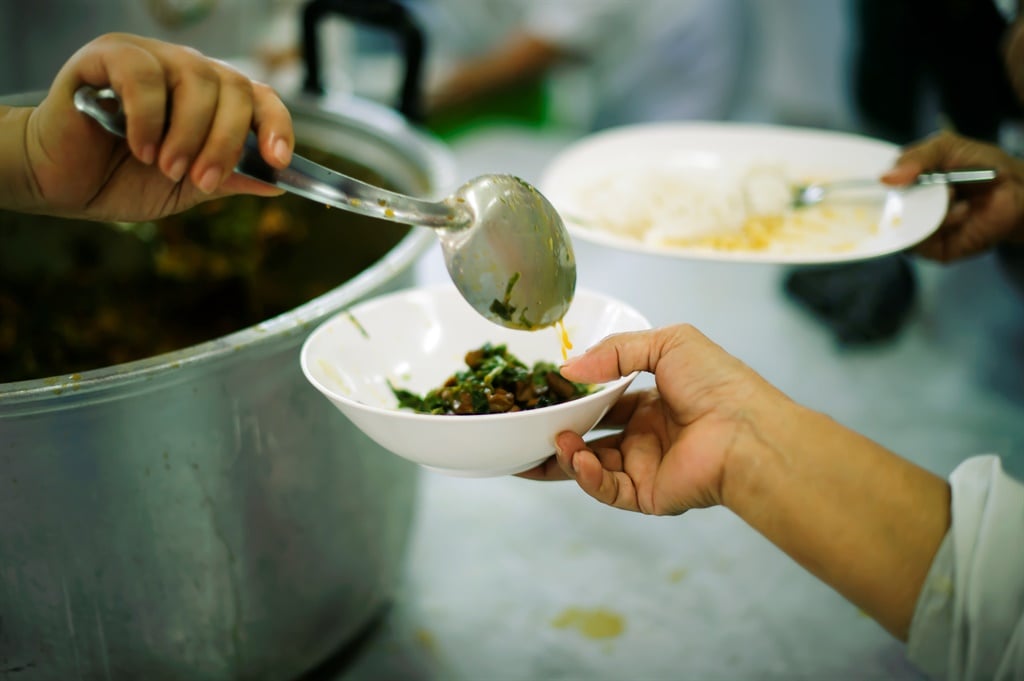
More than 7 million caregivers and 13 million children have been plunged deeper into poverty as payouts of the R500 caregiver grant ended last month. While this top-up was discontinued, the Covid-19 Special Relief of Distress grant, which reaches about 6 million people, was extended. In the final article of a six-part series on child hunger, Kathryn Cleary speaks to mothers, children and experts about the implications of these decisions about grants.
As last month ended, so did the caregiver top-up of the child support grant.
Finance Minister Tito Mboweni, in his medium-term budget speech delivered in Parliament last month, said government would not extend the R500 grant top-up. This top-up was for caregivers with children who receive the monthly child support grant, which sits at R450 per child. The top-up added R500 per caregiver, not per child.
Government did however extend the Covid-19 Special Relief of Distress grant, R350 per month, until the end of January next year. Only people who are unemployed, do not receive a grant or any other form of income, are eligible for this special grant.
More than 13 million children benefit from the child support grant, compared to about 6 million beneficiaries of the special relief grant.
Working-age women
“Most of the 7.1 million caregivers who receive the child support grant are working-age women who are unemployed or extremely poor. But they may not apply for the Covid-19 relief grant for themselves. If they try to apply, they will be automatically kicked out of the system as ineligible because they will appear as grant beneficiaries on the system, even though the grants they receive are intended for the children in their care,” says Katharine Hall, a senior researcher with the University of Cape Town’s Children’s Institute.
READ: When kids go hungry: Elsenburg women fill the food parcel gap
People can only apply for the special relief of distress grant if they are not recipients of any other grant, unemployment insurance benefit, National Student Financial Aid Scheme or have any sort of income. This means the caregivers of more than 13 million children are not eligible for the grant.
The move to end the child support grant top-up also left some children with questions.
“Government paid extra money to parents and it helped them to purchase extra groceries they needed. I believe it was taken away and I don’t feel it’s fair to those who really needed it. Why can’t government just continue paying the grant to the people as lots of them need it,” says 15-year-old Saadiq, a reporter at RX Radio, Red Cross War Memorial Children’s Hospital’s radio station in Cape Town.
Spotlight approached the National Treasury and the department of social development for comment on the decision to stop the caregiver grant as well as the impact this may have on women and children. The department declined to comment and referred questions to the Treasury which told Spotlight it simply implemented a Cabinet decision. Cabinet spokesperson Phumla Williams referred Spotlight’s query back to the department.
In an earlier report published in GroundUp, the Treasury director-general, Dondo Mogajane, in an affidavit in the Black Sash court application, made it clear the top-up grant was never meant to be permanent. He said it was only implemented during the hard Covid-19 lockdown as most economic activity came to a standstill.
Since May, Mogajane said, the economy has re-opened, and the situation has changed. He also stressed that Mboweni cannot unilaterally just declare a new social protection security without the minister of social development.
Parliament will also have to approve this. Extending the top-up grant for three months would cost about R10.9 billion and there is no additional funding available for this.
Mothers fear for the future
Meanwhile, as the holiday season draws near, in Klapmuts a group of women from the community-based organisation Ubuntu Rural Women and Youth Movement are unsure how they will feed their children without the top-up grant and without work. Farming communities like those in and around Klapmuts in the Western Cape faced severe job losses during the lockdown – and women are among those hardest hit.
Sophie Pietersen, a mother, told Spotlight that without the top-up grant she will be stuck in a cycle of debt. During the lockdown when there was no food at home, Pietersen would buy food from others on credit, promising to pay them back.
Without the top-up grant, she will only have enough money to pay off her debt from previous months, leaving her without money for food. Pietersen, who is not eligible for the special relief of distress grant, depends on food parcels and community soup kitchens organised by the non-profit organisation Ubuntu Rural Women and Youth Movement based in Stellenbosch.
“Women are suffering in Klapmuts,” says Aziza Bahati-Ibolwa, one of Ubuntu Rural’s leaders in the community. “The R450 grant per month is an insult to momma,” she says. Without the top-up, and ineligible for the special relief of distress, this group of women will not be able to provide their children with any presents or treats in December.
“The lockdown brought us to our knees,” says Yvonne Daniels. Daniels, a single parent, used to clean houses three times a week. She lost her job as a result of the lockdown.
Another RX Radio reporter, 11-year-old Naseerah, believes that caregivers should be continue to receive the special relief of distress grant. “The cost of living is high and the child support grant is not sufficient to support their needs,” she says.
Mujahid (19), also a RX Radio reporter, agrees. “In today’s life, the economy is weak and things are really expensive and most times parents and caregivers can just provide the children with the bare minimum of the basic needs which they require.”
Grant misses the mark for children
This year the food poverty line, a cost of living measurement used by Statistics SA, was set at R585 per person per month. At R450 per month, the child support grant is well below the food poverty line.
For parents such as Eva van Wyk, who no longer receive the child support grant since her children are now too old, the special relief of distress money does not go very far.
Van Wyk lives in Elsenburg and must pay for private transport to Klapmuts, which is 10km away and then take a taxi to the post office a further 35kms from Klapmuts. There are no taxis where Van Wyk lives. She says that a return trip to collect the grant is R150 each way, leaving only R50 for food.
Hall says the special relief grant is not effective at reaching children, rather it only adds income into a larger family. “The evidence so far is that this grant is skewed towards men, and largely not to households with children,” she says.
“The research is correct that the R350 grant was skewed towards men,” says Lumka Oliphant, spokesperson for the department of social development.
“But, this was a group that has not been able to access social assistance. However, this grant is the smallest grant relative to other grants, considering that the majority of our existing grant beneficiaries are women,” Oliphant explains.
“These grants continue to be paid monthly and will not end even beyond the state of national disaster. When you view the social assistance system holistically, the gender balance still favours women with a 68% to 32% gender split.”
Noting the top-up grant’s importance during this time, the Black Sash Trust brought an urgent court application to prevent the SA Social Security Agency (Sassa) from discontinuing the top-up grant, but on October 28 the application was struck off the roll in the Pretoria High Court. Judge Nana Makhubele ruled that the matter was not urgent.
Black Sash’s founding affidavit states that Sassa has provided no reasons for terminating the caregiver grant, and its conduct is “not rational and unfairly discriminatory”.
No clear explanation
When Spotlight approached Sassa for comment on the decision to stop the caregiver top-up grant, spokesperson Omphemetse Molopyane asked: “Why do you guys keep calling [Sassa], when the president said [the caregiver grant] was for six months.”
Another Sassa spokesperson, Paseka Letsatsi, referred Spotlight back to the department of social development and the presidency. At the time of publication, there was no response from the presidency.
As a result of this Cabinet decision, Hall warns that children and their caregivers will be left substantially poorer, and families will be plunged deeper into poverty.
“Clearly, the child support grant, small as it is, will need to be shared more broadly in households where caregivers cannot support themselves. It will not be enough to go around,” she says.
READ: When kids go hungry: What happens when school meals stop?
Hall says that while South Africa is seeing higher rates of hunger during this time, there are serious risks of eroding the longer-term impact of the child support grant.
“Much of the evidence about the positive effects of the child support grant on children’s nutritional and health outcomes, on educational attendance and learning outcomes, and even on adolescent risk behaviour, shows that these outcomes rely on sustained access to the child support grant from an early age.”
Increase child support grant to food poverty line
As an immediate solution, Hall says the child support grant must at least be increased to meet the food poverty line.
“It will not help to have saved money at this time by depriving a generation of children of the basic support they need to survive and develop. It is easily done.
“The regulations already allow for the minister [of social development] to determine the amount of the grant. It can be effected by Sassa immediately. It is a matter of budget trade offs, and of course there are many claims on the budget but the survival of children cannot be traded away.”
** When kids go hungry is a six-part series looking at the effects of the Covid-19 pandemic and the lockdown on the nutritional status of children in South Africa. This series is supported by Media Monitoring Africa as part of this year’s Isu Elihle Awards.
* This article was produced for Spotlight – health journalism in the public interest.




 Publications
Publications
 Partners
Partners











